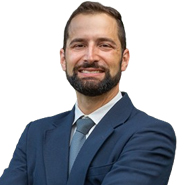WORKSHOP
Toward Flourishing: A Theoretical Reset for Journalism Ethics
6th-7th June 2024

The Public Communication Department of the School of Communication and the Western Michigan University Center for the Study of Ethics in Society invite abstracts for an interdisciplinary workshop on journalism ethics theory to be held June 6-7, 2024 in Pamplona, Spain

CLOSED
We seek to reframe and reinterpret journalism ethics theory as it relates to a politics of the common good
This workshop will gather a community of scholars interested in philosophical approaches to theory at the nexus of journalism, ethics and politics. In particular, we are interested in proposals for repairing, restoring, or redefining basic concepts in journalism ethics going forward. We seek to reframe and reinterpret journalism ethics theory as it relates to a politics of the common good. The aim is to make a space for seeing things differently so theory can better inform the practice of journalism ---particularly its political function- in the context of systematic disinformation, news avoidance, and political polarization in contemporary democracies.
We seek to reframe and reinterpret journalism ethics theory as it relates to a politics of the common good. We are guided by these questions
Do we have the journalism we need to live well as individuals and members of political communities?
Does journalism have the contexts it needs to flourish as a practice?
What ethical concepts and theoretical approaches can journalism define to create an adequate ethos for practitioners, allowing them to accomplish their mission in the current historical context?
TOPICS FOR PROPOSALS
![]()
Specification of key journalism ethics concepts in relation to political cultures, media systems, professionalism, digitalization, economic arrangements, and other important “thickening” agents in specific democratic contexts.
![]()
Comparative works that look at the variety of ways in which journalism can promote (or obstruct) flourishing in democracies in different historical eras, cultures and media systems.
![]()
Proposals to systematically interrogate, clarify, and critique existing concepts in journalism ethics using flourishing as the standard.
![]()
Proposals to systematically repair, expand, recover, appropriate or invent journalism ethics concepts using flourishing as the standard.
A goal of the workshop is to identify and gather authors who want to discuss philosophical approaches to journalism’s ethical mission in the current context and may want to submit completed papers for possible publication in a special journal issue and/or edited academic volume.
 For more information, contact mcodina@unav.es.
For more information, contact mcodina@unav.es.
STANDARDS AND INDICATIONS
Submissions for the workshop are invited in the form of abstracts of 200-350 words should clearly and concisely summarize a theoretical argument related to the nexus of journalism, ethics and politics. You can send your submissions through this online form.
Abstract and paper submissions will use the University of Navarra Open Journal System.
All submissions will go through the process of peer review by the conference’s Scientific Committee. Paper abstracts must be submitted online by 20th of March 2024.
IMPORTANT DATES
20
March 2024
Extended submission deadline
27
March 2024
Applicants will be notified
6-7
June 2024
Workshop
All sessions will be in Room 30 of the Edificio Central unless otherwise noted. All presentations are in English.

Panels with 3 papers have 20 minutes to present and 10 minutes for discussion. Panels with 4 papers have 15 minutes to present and 7 minutes for discussion.
THURSDAY JUNE 6
Why We Have to Think Differently about Journalism Ethics
9:00-9:30 Registration
9:30-10:00 Opening Remarks
10:15-11:15 Keynote: How to think seriously about the common good and how much to expect
Mark Hopkemier, Assistant Professor of Politics, Philosophy and Economics, Universidad de Navarra
11:15-11:45 Coffee Break | Patio, Edificio Central
11:45-12:00 Group Photo
12:00-13:30 The Context of Journalism Practice
• Unity Amidst Chaos: Bridging Behaviors and the Role of Media Elites in Polycrisis Environments
Aurken Sierra, Universidad de Navarra, Spain
• Partisan Journalism for Community, Democracy, and Humanity
Lee Artz, Purdue University Northwest, USA
• Your Wounds Can Speak, But You Cannot: Ethical Challenges Inherent in Citizen Journalism Since the 2011 Syrian Uprisings and War
Lisa Deml, Birmingham City University, UK
Moderator: María Fernanda Novoa. Universidad de Navarra
14:00-16:00 Lunch | Museo Universidad de Navarra
16:00-17:30 Interrogating Basic Concepts
• Communication, Well-Being and Human Flourishing
Lydia Sánchez, Universitat de Barcelona, Spain
• Does It Still Make Sense to Talk About Truth in the Current Context of Platforms and Social Media?
Ana Azurmendi, Universidad de Navarra, Spain
• Journalistic Storytelling for the Common Good
Joe Simpson, London Metropolitan University, UK
Moderator: Clara González Tossat. Universidad de Navarra
17:30-17:45 Discussant
Mónica Codina, Universidad de Navarra, Spain
18:00-18:30 Optional guided museum visit (tentative)
FRIDAY JUNE 7
Theoretical Perspectives for Addressing Journalism’s Challenges
9:30-11:00 Virtues and Exemplars in Journalism
• The Virtue of Curiosity in Media Ethics and News Literacy
Patrick Plaisance, Pennsylvania State University, USA
• Exemplar-Based Virtue Theory and the Problem of Scale in 21st-Century Journalism
David Craig, University of Oklahoma, USA
• Applying Virtue Ethics to Journalism in Ghana, and Beyond
Chris Roberts and Philippe Buadee, University of Alabama, USA
• Reconciling Virtue Ethics and Situationism
Bastiaan Vanacker, Loyola University Chicago, USA
Moderator: Adriana Gordejuela. Universidad de Navarra
11:00-11:30 Coffee Break | Patio, Edificio Central
11:30-13:00 Where to Begin?
• Rethinking Communication: A Theoretical Reset for Journalism Ethics
Manuel Martín Algarra, Jordi Rodríguez-Virgili and Marta Torregrosa, Universidad de Navarra, Spain
• Building the Right Character: A Second Look at Communitarianism and Press Ethics
Lee Ann Peck, University of Northern Colorado, USA
• Sources & Sorcery: Ethics for Creating, Curating, and Consuming News
Deni Elliott, University of South Florida, USA
Moderator: Aurken Sierra. Universidad de Navarra
13:00-13:15 Discussant
Sandra L. Borden, Western Michigan University, USA
13:30-15:30 Lunch | Faustino’s, ground floor of Edificio Central
TBD Optional tour of Pamplona’s Casco Viejo (tentative)
KEYNOTE SPEAKERS

Mark Francis Hoipkemier
Universidad de Navarra
Assistant Professor of Politics, Philosophy and Economics
PRESENTERS
Ana Azurmendi. Universidad de Navarra
David A. Craig. University of Oklahoma
Lisa Deml. Birmingham City University
Deni Elliott. University of South Florida
Manuel Martín Algarra. Universidad de Navarra
Lee Anne Peck. University of Northern Colorado
Patrick Plaisance. Penn State
Lee Artz. Purdue University Northwest
Chris Roberts. University of Alabama
Jordi Rodríguez-Virgili. Universidad de Navarra
Lydia Sánchez. Universitat de Barcelona
Aurken Sierra. Universidad de Navarra
Joe Simpson. London Metropolitan University
Marta Torregrosa. Universidad de Navarra
Bastiaan Vanacker. Loyola University Chicago
WORKSHOP ORGANIZERS
Mónica Codina. Universidad de Navarra
Sandra Borden. Western Michigan University
Presenters must register before April 19th
TRAVEL AND ACCOMMODATION
The conference will take place at the Universidad de Navarra campus (Room 30 of Central Building) located in Pamplona, Spain.
HOW TO GET TO PAMPLONA CITY?

PLANE
From Pamplona Airport
You can travel by plane via Madrid or Barcelona.
Visit Iberia USA for more information.

TAXI
To get to the Universidad de Navarra from the airport, we kindly suggest you take a taxi. Taxis are available in front of the airport building. Since Pamplona Airport is fairly small, you will easily see the taxis waiting in front of the arrivals gate. The cost of the taxi ride to the city should be around 15€.
If you need a taxi service in Pamplona, we recommend calling the following phone numbers (+34) 948 221 212, (+34) 948 232 300 or (+34) 948 351 400. Taxis rarely stop in the street; it is necessary to go to a taxi stop or request one by phone.

TRAIN
From Pamplona train station
The train station (Renfe) is 2.5 kilometers from Old Town Pamplona. In the station there are taxi and bus stops (lines 7 and 9). For information on routes, timetables, and prices, you must visit the Renfe website.

PUBLIC TRANSPORT
From the University to the city center
If you want to get to the city center by public transport, there is a bus stop (line 5) just a 3 minute walk from the Conference venue.
ACCOMMODATION
The accommodation plans are personal.
Accommodation special discounts through the travel agency: comercialpamplona@viajeseci.es
The prices indicated are those agreed upon through the travel agency. People interested in booking taking advantage of special discounts, please contact comercialpamplona@viajeseci.es
►Occidental Pamplona: Distance from the Conference Venue: 15 minutes walking.
→Double Room (single use) - €80 per room/night (includes breakfast and VAT)
→Double Room (double use) - €95 per room/night (includes breakfast and VAT)
►Hotel Blanca de Navarra: Distance from the Conference Venue: 13 minutes walking.
→Double Room (single use) - €110 (VAT and breakfast included)
→Double Room (double use) - €125 (VAT and breakfast included)
►NH Iruña Park: Distance from the Conference Venue: 25 minutes walking.
→Double Room (single use) - €112.20 (VAT and breakfast included)
→Double Room (double use) - €123.20 (VAT and breakfast included)
►Hotel Albret: Distance from the Conference Venue: 25 minutes walking.
→Double Room (single/double use) - €95 (accommodation only, VAT included)
→Buffet breakfast - €15 (VAT included) per person
►Hotel Catedral: Distance from the Conference Venue: 40 minutes walking /12 minutes by taxi.
►Hotel Tres Reyes: Distance from the Conference Venue: 30 minutes walking /11 minutes by taxi.
►Hostal Acella: Distance from the Conference Venue: 13 minutes walking.


